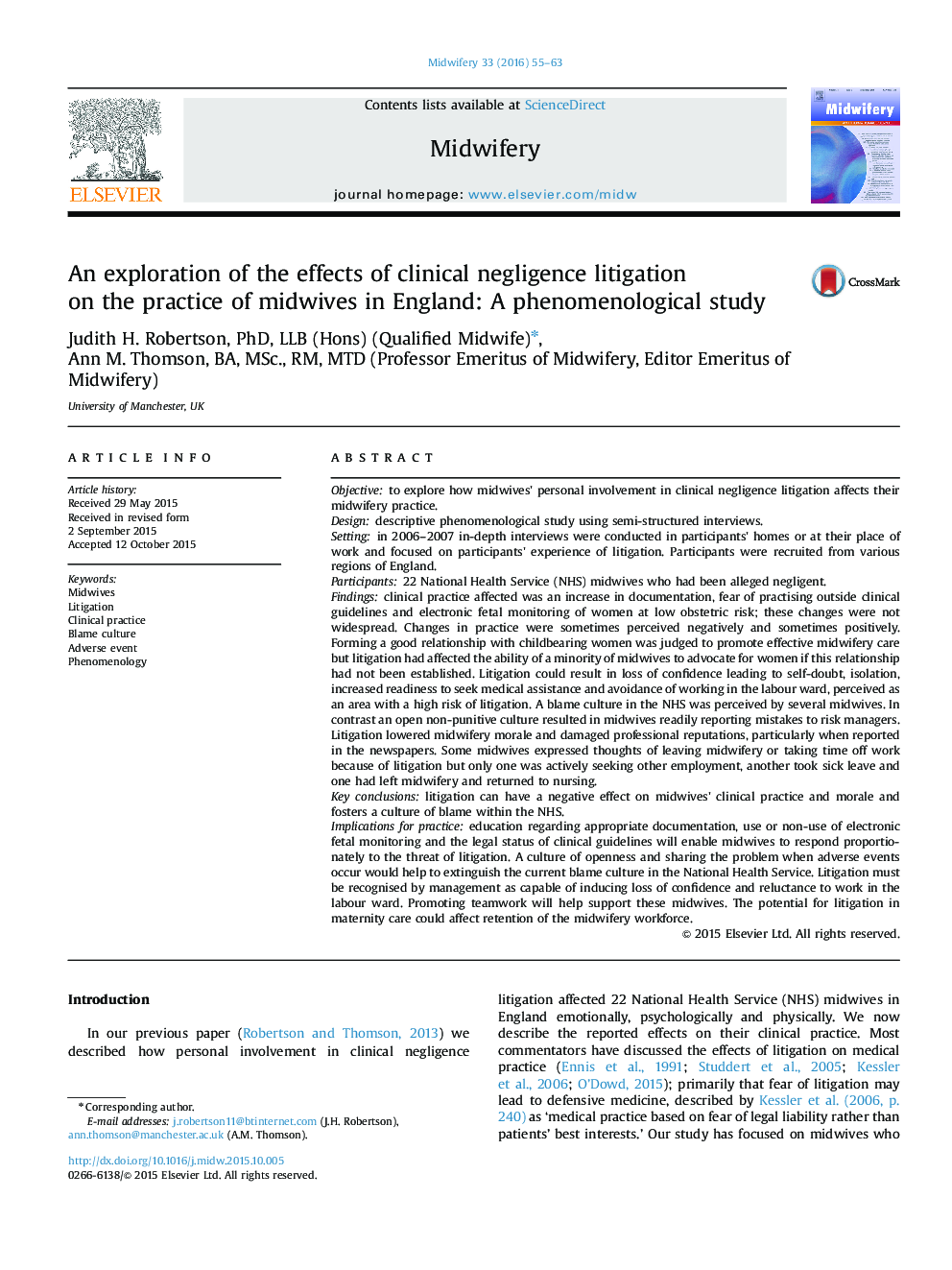| کد مقاله | کد نشریه | سال انتشار | مقاله انگلیسی | نسخه تمام متن |
|---|---|---|---|---|
| 1084472 | 1487151 | 2016 | 9 صفحه PDF | دانلود رایگان |
• Midwives were interviewed about their experience of clinical negligence litigation.
• Clinical practice changes, loss of confidence, fear of labour ward work were found.
• Midwives perceived a blame culture within the National Health Service.
• Experiencing litigation lowered morale and damaged their professional reputation.
• Leaving the profession or taking time off sick was contemplated by some midwives.
Objectiveto explore how midwives׳ personal involvement in clinical negligence litigation affects their midwifery practice.Designdescriptive phenomenological study using semi-structured interviews.Settingin 2006–2007 in-depth interviews were conducted in participants׳ homes or at their place of work and focused on participants׳ experience of litigation. Participants were recruited from various regions of England.Participants22 National Health Service (NHS) midwives who had been alleged negligent.Findingsclinical practice affected was an increase in documentation, fear of practising outside clinical guidelines and electronic fetal monitoring of women at low obstetric risk; these changes were not widespread. Changes in practice were sometimes perceived negatively and sometimes positively. Forming a good relationship with childbearing women was judged to promote effective midwifery care but litigation had affected the ability of a minority of midwives to advocate for women if this relationship had not been established. Litigation could result in loss of confidence leading to self-doubt, isolation, increased readiness to seek medical assistance and avoidance of working in the labour ward, perceived as an area with a high risk of litigation. A blame culture in the NHS was perceived by several midwives. In contrast an open non-punitive culture resulted in midwives readily reporting mistakes to risk managers. Litigation lowered midwifery morale and damaged professional reputations, particularly when reported in the newspapers. Some midwives expressed thoughts of leaving midwifery or taking time off work because of litigation but only one was actively seeking other employment, another took sick leave and one had left midwifery and returned to nursing.Key conclusionslitigation can have a negative effect on midwives׳ clinical practice and morale and fosters a culture of blame within the NHS.Implications for practiceeducation regarding appropriate documentation, use or non-use of electronic fetal monitoring and the legal status of clinical guidelines will enable midwives to respond proportionately to the threat of litigation. A culture of openness and sharing the problem when adverse events occur would help to extinguish the current blame culture in the National Health Service. Litigation must be recognised by management as capable of inducing loss of confidence and reluctance to work in the labour ward. Promoting teamwork will help support these midwives. The potential for litigation in maternity care could affect retention of the midwifery workforce.
Journal: Midwifery - Volume 33, February 2016, Pages 55–63
